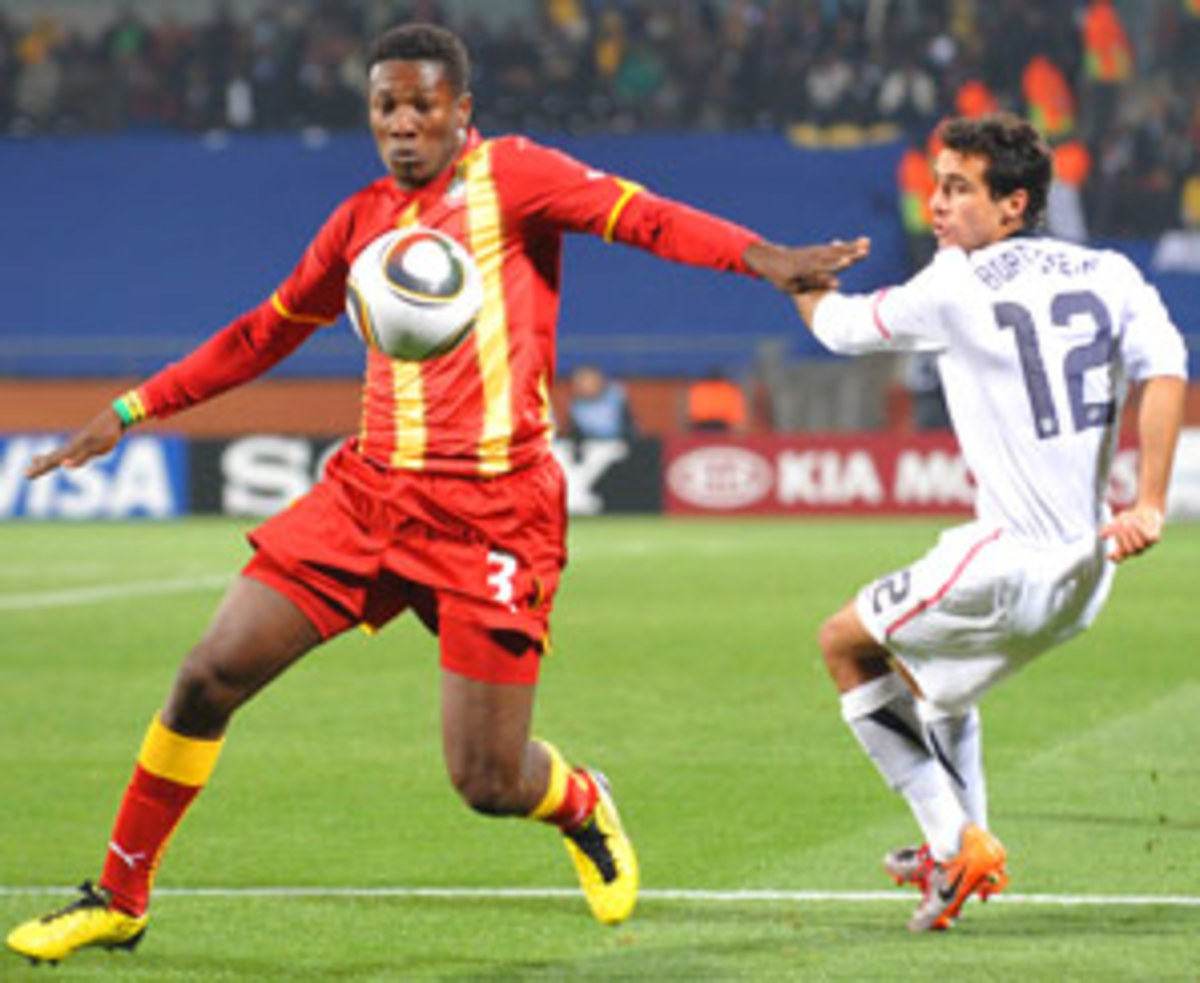In agony of defeat, perspective -- and advice of a 5-year-old -- helps
Have you ever been able to appreciate -- or even to celebrate -- the team that just beat yours? Last June, when Ghana's Asamoah Gyan scored in extra time to eliminate the U.S. from the World Cup, my 5-year-old turned to me and said: "At least the people in Ghana are happy."
"The People in Ghana Are Happy" has since become a household catchphrase, a reminder, when one of our teams loses, that somebody else is celebrating. So: Your YMCA soccer team lost 7-1? At least the People in Ghana Are Happy. The Vikings got beat by the Jets? Well, the People in Ghana Are Happy. Arsenal lost to Chelsea again? The People in Ghana Are Happy. (In that case, they really are, assuming People in Ghana have some national affection for Michael Essien, Chelsea's Ghanaian midfielder.)
Compassion and empathy are anathema to sports. Most of you will never harbor sympathy for the devil -- or Devils, if you're a North Carolina fan. Occasionally, Americans in large numbers are moved by a vanquished athlete's grief. Larry Bird with a towel over his head in 1979 comes immediately to mind. But more often, sports fans do the opposite -- they delight in the desolation of a defeated archrival. This is schadenfreude, joy in the misery of others, and it seems to be the primary emotion fueling much of the contemporary sports world.
To be fair, showy exhibitions of grief -- what I would call Public Displays of Dejection -- have become standard after games of every description. It's hard to know which are genuine and which are for the benefit of TV cameras.
Women in labor are asked to rate the pain of their contractions from 1 to 10. My sister, an ER doctor and mother of four, always puts her pain at about a five. "In case something even more painful ever happens," she explains. "I want to leave room on the upper register." Athletes who remain frozen on the bench after routine playoff eliminations -- bowed heads shrouded in towels -- might want to do the same.
Having said that, there are four possible emotions after witnessing your team play:
1. Happiness that your team won.
2. Anger (or sadness) that your team lost.
3. Happiness that the other team lost.
The fourth permutation almost never arises, but it does exist, at least in our house, and it is by far the hardest one to master:
4. Happiness that the other team won.
Number four, in other words, means this: The People in Ghana Are Happy. It's a healthy attitude, when taken in small doses. Surely a nation of 23 million people, for whom soccer is the most popular sport by far, has a greater stake in the U.S.-Ghana match than America does. (Or so my daughter and I persuaded ourselves as the whistle blew on extra time.)
Though I'm from Minnesota, some small part of my reptilian brain was immediately happy when the Vikings lost to the Saints in the NFC Championship Game last January. It instantly recognized what the victory meant for the biblically suffering citizens of New Orleans. Though the phrase hadn't yet entered my consciousness, I knew -- even as Garrett Hartley's field goal split the bars in overtime -- that The People in Ghana Are Happy.
It wasn't until five months later that my daughter uttered the phrase during the World Cup. It was just one of her many cogent insights into sports. Take this observation, on sportswriting. "I don't want to be anything when I grow up," she once told me. "Because you're not anything, Dad, and I want to be like you."
Speaking of children, a milestone in sports labor went little noted this past weekend. That is to say, during Game 1 of the American League Championship Series, my wife went into labor. The Rangers were leading the Yankees 5-0 when the contractions began and I was pulled, with some urgency, away from the hospital lounge's communal TV. A few hours later, when our daughter was delivered, and I saw that New York had won 6-5, I tried and failed to feel delight for long-suffering Yankee fans.
I was in every other way euphoric -- overjoyed and underslept. Which only underscored this Yankee exceptionalism. For the Bronx Bombers, metaphorically speaking, the People in Ghana Aren't Happy. It is unlikely that they ever will be.
The new baby went half a day without a name, unless you count The New Baby. My wife, noting the muted Man United-West Bromwich Albion match on the TV in her hospital room, said: "What about Rooney Rushin?" I looked up the names of other people who were born on October 16 and suggested Manute or McCarver or Mazzone -- the former Braves pitching coach who rocked like a baby in the dugout. But none seemed right for a girl.
So we named her Rose, hopeful that she'll view the world through glasses of that color and recognize, in life's inevitable defeats and disappointments, that the People in Ghana are Happy. Or as Eric Idle put it: Always Look on the Bright Side of Life.
It won't be easy, of course. Our daughter shares a birthday, after all, with Oscar Wilde, who said: "Anybody can sympathize with the sufferings of a friend, but it requires a very fine nature to sympathize with a friend's success."
And when it comes to the success of an enemy, an archrival -- the other team -- it will take a finer nature still.






